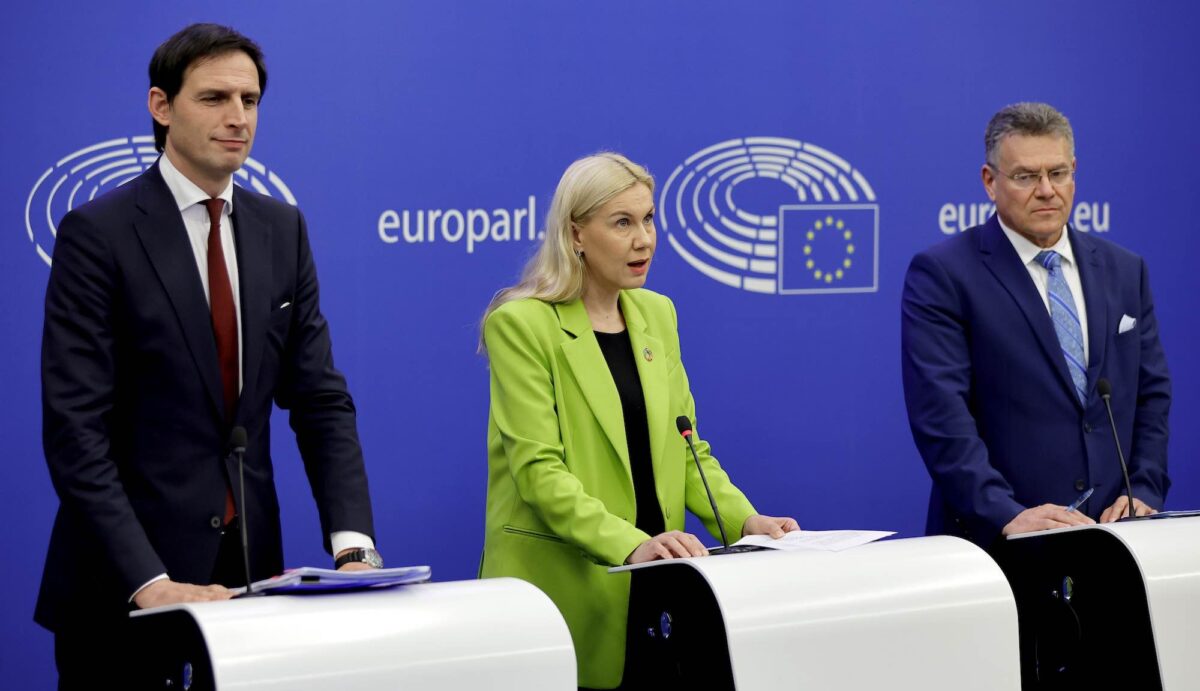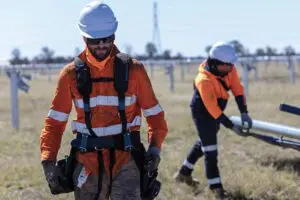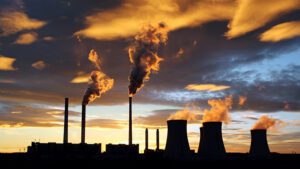The European Commission has proposed a 90% net greenhouse gas emission reduction by 2040 compared to 1990 levels as part of the EU’s pathway to reaching net zero emissions by 2050.
Announced on Tuesday at the same time as the much-anticipated Net-Zero Industry Act (NZIA), the Commission, part of the executive of the European Union, published a detailed impact assessment on the various pathways to reaching a 2050 net-zero target.
Based on the impact assessment, the Commission recommended a 90% net greenhouse gas emissions reduction by 2040 compared to 1990 levels.
Such a target “would ensure that the corresponding overall greenhouse gas (GHG) emissions budget for the EU between now and 2050 is in line with the provisions of the European Climate Law and provides a credible pathway to a strong and sustainable society in Europe,” the Commission said.
The proposal comes in line with requirements set forth by the European Climate Law instructing the European Commission to propose a climate target for 2040 at the latest six months after the global stocktake under the Paris Agreement, which took place in December 2023.
The proposal set out by the Commission also includes the policies which would be necessary to achieve a 90% target further to the full implementation of the already agreed upon 2030 target of reducing emissions by 55%.
“The energy sector is leading the way in Europe’s decarbonisation and emissions reduction, and we must continue on this path towards 2040,” said Kadri Simson, Commissioner for Energy.
“In the 2030s we should see major progress in the transition away from fossil fuels, and an increasing share of renewables in our energy mix.
“We are sending a clear signal to investors that Europe is staying the course and offers them long-term predictability and stability. For our citizens, we are giving a clear sign that cleaner solutions are on the way, and that we are accompanying them in the transition.”
The publication of the Commission’s proposal will now be followed by a discussion with all stakeholders ahead of the upcoming European elections, with a legislative proposal to be made by the next Commission following the elections.
“Achieving this target will require a number of enabling conditions, such as the full implementation of the agreed 2030 framework, ensuring the competitiveness of the European industry, a greater focus on a just transition that leaves no one behind, a level playing field with international partners, and a strategic dialogue on the post-2030 framework, including with industry and the agricultural sector,” said the Commission.
Despite a relatively strong target – on the lower end of the 90% to 95% that the EU’s official climate advisors had recommended – the text of the document nevertheless waters down language around the need to reduce the climate footprint of agriculture.
This follows months of protesting by farmers and right-wing members of EU’s parliament who have claimed that the Commission’s green targets will constrain lifestyles and the economy.
“The farmers are revolting in Europe and the European Commission is coming with further unrealistic ambitions,” said Alexandr Vondra to Reuters, from the eurosceptic European Conservatives and Reformists Group, criticising what he called a drive to “force people to have a different lifestyle.”
The final text of the proposal agrees that agriculture “plays a vital role” in ensuring food security and that “Like other sectors, agriculture also has a role to play in the green transition. With effective policies that reward good practices there is room to decrease emissions from the sector faster while enhancing carbon removals in the land sector, in soils and forests.
“The agri-food value chain should be involved in order to create synergies and exploit the maximum mitigation potential.”
Mathieu Mal, policy officer for agriculture and climate at the European Environmental Bureau, described the omission of a climate target for agricultural emissions as “highly disappointing” and called for the EU’s agri-food sector to “contribute to EU climate ambition.”
“This lack of ambition will not only hinder the EU’s efforts to tackle emissions and reach climate neutrality, but by failing to look at holistic long-term solutions, the EU fails to act on other areas impacted by our agri-food systems. Further delays and short-term concessions will ultimately harm EU farmers and agriculture, including threatening long-term food security,” said Mal.










